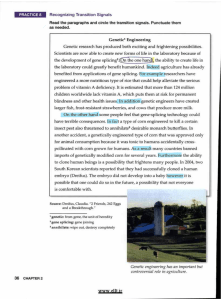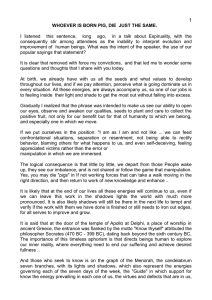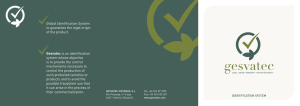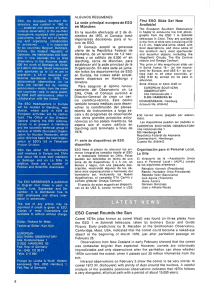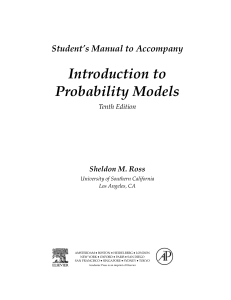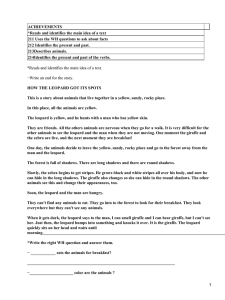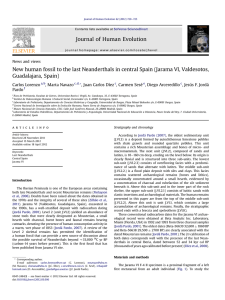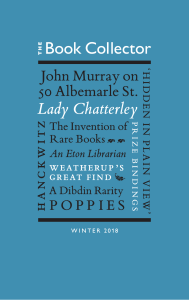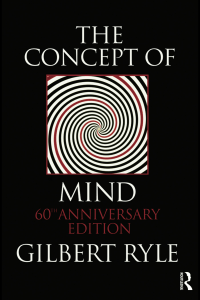remember still—something will always stir in me at that memory
Anuncio
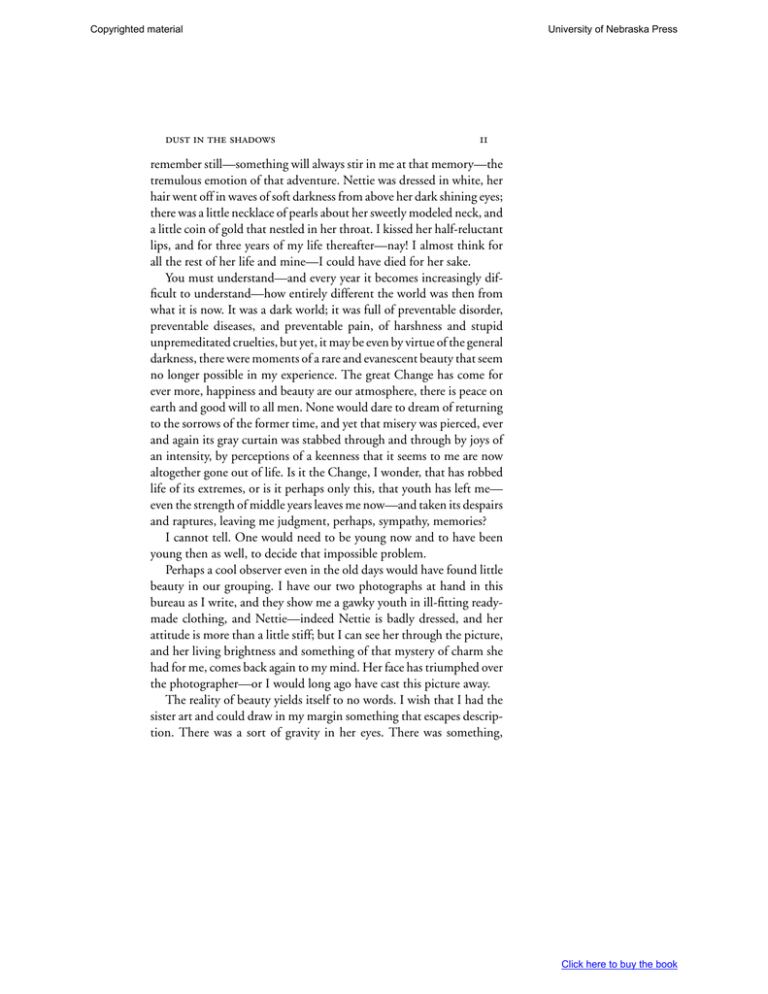
Copyrighted material dust in the shadows University of Nebraska Press 11 remember still—something will always stir in me at that memory—the tremulous emotion of that adventure. Nettie was dressed in white, her hair went off in waves of soft darkness from above her dark shining eyes; there was a little necklace of pearls about her sweetly modeled neck, and a little coin of gold that nestled in her throat. I kissed her half-reluctant lips, and for three years of my life thereafter—nay! I almost think for all the rest of her life and mine—I could have died for her sake. You must understand—and every year it becomes increasingly difficult to understand—how entirely different the world was then from what it is now. It was a dark world; it was full of preventable disorder, preventable diseases, and preventable pain, of harshness and stupid unpremeditated cruelties, but yet, it may be even by virtue of the general darkness, there were moments of a rare and evanescent beauty that seem no longer possible in my experience. The great Change has come for ever more, happiness and beauty are our atmosphere, there is peace on earth and good will to all men. None would dare to dream of returning to the sorrows of the former time, and yet that misery was pierced, ever and again its gray curtain was stabbed through and through by joys of an intensity, by perceptions of a keenness that it seems to me are now altogether gone out of life. Is it the Change, I wonder, that has robbed life of its extremes, or is it perhaps only this, that youth has left me— even the strength of middle years leaves me now—and taken its despairs and raptures, leaving me judgment, perhaps, sympathy, memories? I cannot tell. One would need to be young now and to have been young then as well, to decide that impossible problem. Perhaps a cool observer even in the old days would have found little beauty in our grouping. I have our two photographs at hand in this bureau as I write, and they show me a gawky youth in ill-fitting readymade clothing, and Nettie—indeed Nettie is badly dressed, and her attitude is more than a little stiff; but I can see her through the picture, and her living brightness and something of that mystery of charm she had for me, comes back again to my mind. Her face has triumphed over the photographer—or I would long ago have cast this picture away. The reality of beauty yields itself to no words. I wish that I had the sister art and could draw in my margin something that escapes description. There was a sort of gravity in her eyes. There was something, Click here to buy the book Copyrighted material 12 University of Nebraska Press the comet a matter of the minutest difference, about her upper lip so that her mouth closed sweetly and broke very sweetly to a smile. That grave, sweet smile! After we had kissed and decided not to tell our parents for a while of the irrevocable choice we had made, the time came for us to part, shyly and before others, and I and my mother went off back across the moonlit park—the bracken thickets rustling with startled deer— to the railway station at Checkshill and so to our dingy basement in Clayton, and I saw no more of Nettie—except that I saw her in my thoughts—for nearly a year. But at our next meeting it was decided that we must correspond, and this we did with much elaboration of secrecy, for Nettie would have no one at home, not even her only sister, know of her attachment. So I had to send my precious documents sealed and under cover by way of a confidential schoolfellow of hers who lived near London. . . . I could write that address down now, though house and street and suburb have gone beyond any man’s tracing. Our correspondence began our estrangement, because for the first time we came into more than sensuous contact and our minds sought expression. Now you must understand that the world of thought in those days was in the strangest condition, it was choked with obsolete inadequate formulæ, it was tortuous to a maze-like degree with secondary contrivances and adaptions, suppressions, conventions, and subterfuges. Base immediacies fouled the truth on every man’s lips. I was brought up by my mother in a quaint old-fashioned narrow faith in certain religious formulæ, certain rules of conduct, certain conceptions of social and political order, that had no more relevance to the realities and needs of everyday contemporary life than if they were clean linen that had been put away with lavender in a drawer. Indeed, her religion did actually smell of lavender; on Sundays she put away all the things of reality, the garments and even the furnishings of everyday, hid her hands, that were gnarled and sometimes chapped with scrubbing, in black, carefully mended gloves, assumed her old black silk dress and bonnet and took me, unnaturally clean and sweet also, to church. There we sang and bowed and heard sonorous prayers and joined in sonorous responses, and rose with a congregational sigh refreshed and relieved Click here to buy the book Copyrighted material dust in the shadows University of Nebraska Press 13 when the doxology, with its opening “Now to God the Father, God the Son,” bowed out the tame, brief sermon. There was a hell in that religion of my mother’s, a red-haired hell of curly flames that had once been very terrible; there was a devil, who was also ex officio the British King’s enemy, and much denunciation of the wicked lusts of the flesh; we were expected to believe that most of our poor unhappy world was to atone for its muddle and trouble here by suffering exquisite torments for ever after, world without end, Amen. But indeed those curly flames looked rather jolly. The whole thing had been mellowed and faded into a gentle unreality long before my time; if it had much terror even in my childhood I have forgotten it, it was not so terrible as the giant who was killed by the Beanstalk, and I see it all now as a setting for my poor old mother’s worn and grimy face, and almost lovingly as a part of her. And Mr. Gabbitas, our plump little lodger, strangely transformed in his vestments and lifting his voice manfully to the quality of those Elizabethan prayers, seemed, I think, to give her a special and peculiar interest with God. She radiated her own tremulous gentleness upon Him, and redeemed Him from all the implications of vindictive theologians; she was in truth, had I but perceived it, the effectual answer to all she would have taught me. So I see it now, but there is something harsh in the earnest intensity of youth, and having at first taken all these things quite seriously, the fiery hell and God’s vindictiveness at any neglect, as though they were as much a matter of fact as Bladden’s iron-works and Rawdon’s pot-bank, I presently with an equal seriousness flung them out of my mind again. Mr. Gabbitas, you see, did sometimes, as the phrase went, “take notice” of me, he had induced me to go on reading after I left school, and with the best intentions in the world and to anticipate the poison of the times, he had lent me Burble’s “Scepticism Answered,” and drawn my attention to the library of the Institute in Clayton. The excellent Burble was a great shock to me. It seemed clear from his answers to the sceptic that the case for doctrinal orthodoxy and all that faded and by no means awful hereafter, which I had hitherto accepted as I accepted the sun, was an extremely poor one, and to hammer home that idea the first book I got from the Institute happened to be an American edition of the collected works of Shelley, his gassy prose as well Click here to buy the book Copyrighted material 14 University of Nebraska Press the comet as his atmospheric verse. I was soon ripe for blatant unbelief. And at the Young Men’s Christian Association I presently made the acquaintance of Parload, who told me, under promises of the most sinister secrecy, that he was “a Socialist out and out.” He lent me several copies of a periodical with the clamant title of The Clarion, which was just taking up a crusade against the accepted religion. The adolescent years of any fairly intelligent youth lie open, and will always lie healthily open, to the contagion of philosophical doubts, of scorns and new ideas, and I will confess I had the fever of that phase badly. Doubt, I say, but it was not so much doubt—which is a complex thing—as startled emphatic denial. “Have I believed this!” And I was also, you must remember, just beginning love-letters to Nettie. We live now in these days, when the Great Change has been in most things accomplished, in a time when every one is being educated to a sort of intellectual gentleness, a gentleness that abates nothing from our vigor, and it is hard to understand the stifled and struggling manner in which my generation of common young men did its thinking. To think at all about certain questions was an act of rebellion that set one oscillating between the furtive and the defiant. People begin to find Shelley—for all his melody—noisy and ill conditioned now because his Anarchs have vanished, yet there was a time when novel thought had to go to that tune of breaking glass. It becomes a little difficult to imagine the yeasty state of mind, the disposition to shout and say, “Yah!” at constituted authority, to sustain a persistent note of provocation such as we raw youngsters displayed. I began to read with avidity such writing as Carlyle, Browning, and Heine have left for the perlexity of posterity, and not only to read and admire but to imitate. My letters to Nettie, after one or two genuinely intended displays of perfervid tenderness, broke out toward theology, sociology, and the cosmos in turgid and startling expressions. No doubt they puzzled her extremely. I retain the keenest sympathy and something inexplicably near to envy for my own departed youth, but I should find it difficult to maintain my case against any one who would condemn me altogether as having been a very silly, posturing, emotional hobbledehoy indeed and quite like my faded photograph. And when I try to recall what exactly must have been the quality and tenor of my more sustained Click here to buy the book Copyrighted material dust in the shadows University of Nebraska Press 15 efforts to write memorably to my sweetheart, I confess I shiver. . . . Yet I wish they were not all destroyed. Her letters to me were simple enough, written in a roundish, unformed hand and badly phrased. Her first two or three showed a shy pleasure in the use of the word “dear,” and I remember being first puzzled and then, when I understood, delighted, because she had written “Willie asthore” under my name. “Asthore,” I gathered, meant “darling.” But when the evidences of my fermentation began, her answers were less happy. I will not weary you with the story of how we quarreled in our silly youthful way, and how I went the next Sunday, all uninvited, to Checkshill, and made it worse, and how afterward I wrote a letter that she thought was “lovely,” and mended the matter. Nor will I tell of all our subsequent fluctuations of misunderstanding. Always I was the offender and the final penitent until this last trouble that was now beginning; and in between we had some tender near moments, and I loved her very greatly. There was this misfortune in the business, that in the darkness, and alone, I thought with great intensity of her, of her eyes, of her touch, of her sweet and delightful presence, but when I sat down to write I thought of Shelley and Burns and myself, and other such irrelevant matters. When one is in love, in this fermenting way, it is harder to make love than it is when one does not love at all. And as for Nettie, she loved, I know, not me but those gentle mysteries. It was not my voice should rouse her dreams to passion. . . . So our letters continued to jar. Then suddenly she wrote me one doubting whether she could ever care for any one who was a Socialist and did not believe in Church, and then hard upon it came another note with unexpected novelties of phrasing. She thought we were not suited to each other, we differed so in tastes and ideas, she had long thought of releasing me from our engagement. In fact, though I really did not apprehend it fully at the first shock, I was dismissed. Her letter had reached me when I came home after old Rawdon’s none too civil refusal to raise my wages. On this particular evening of which I write, therefore, I was in a state of feverish adjustment to two new and amazing, two nearly overwhelming facts, that I was neither indispensable to Nettie nor at Rawdon’s. And to talk of comets! Click here to buy the book Copyrighted material 16 University of Nebraska Press the comet Where did I stand? I had grown so accustomed to think of Nettie as inseparably mine— the whole tradition of “true love” pointed me to that—that for her to face about with these precise small phrases toward abandonment, after we had kissed and whispered and come so close in the little adventurous familiarities of the young, shocked me profoundly. I! I! And Rawdon didn’t find me indispensable either. I felt I was suddenly repudiated by the universe and threatened with effacement, that in some positive and emphatic way I must at once assert myself. There was no balm in the religion I had learnt, or in the irreligion I had adopted, for wounded self-love. Should I fling up Rawdon’s place at once and then in some extraordinary, swift manner make the fortune of Frobisher’s adjacent and closely competitive pot-bank? The first part of that program, at any rate, would be easy of accomplishment, to go to Rawdon and say, “You will hear from me again,” but for the rest, Frobisher might fail me. That, however, was a secondary issue. The predominant affair was with Nettie. I found my mind thick-shot with flying fragments of rhetoric that might be of service in the letter I would write her. Scorn, irony, tenderness—what was it to be? . . . “Brother!” said Parload, suddenly. “What?” said I. “They’re firing up at Bladden’s iron-works, and the smoke comes right across my bit of sky.” The interruption came just as I was ripe to discharge my thoughts upon him. “Parload,” said I, “very likely I shall have to leave all this. Old Rawdon won’t give me a rise in my wages, and after having asked I don’t think I can stand going on upon the old terms any more. See? So I may have to clear out of Clayton for good and all.” 3 That made Parload put down the opera-glass and look at me. “It’s a bad time to change just now,” he said after a little pause. Rawdon had said as much, in a less agreeable tone. Click here to buy the book Copyrighted material dust in the shadows University of Nebraska Press 17 But with Parload I felt always a disposition to the heroic note. “I’m tired,” I said, “of humdrum drudgery for other men. One may as well starve one’s body out of a place as to starve one’s soul in one.” “I don’t know about that altogether,” began Parload, slowly. . . . And with that we began one of our interminable conversations, one of those long, wandering, intensely generalizing, diffusely personal talks that will be dear to the hearts of intelligent youths until the world comes to an end. The Change has not abolished that, anyhow. It would be an incredible feat of memory for me now to recall all that meandering haze of words, indeed I recall scarcely any of it, though its circumstances and atmosphere stand out, a sharp, clear picture in my mind. I posed after my manner and behaved very foolishly no doubt, a wounded, smarting egotist, and Parload played his part of the philosopher preoccupied with the deeps. We were presently abroad, walking through the warm summer’s night and talking all the more freely for that. But one thing that I said I can remember. “I wish at times,” said I, with a gesture at the heavens, “that comet of yours or some such thing would indeed strike this world—and wipe us all away, strikes, wars, tumults, loves, jealousies, and all the wretchedness of life!” “Ah!” said Parload, and the thought seemed to hang about him. “It could only add to the miseries of life,” he said irrelevantly, when presently I was discoursing of other things. “What would?” “Collision with a comet. It would only throw things back. It would only make what was left of life more savage than it is at present.” “But why should anything be left of life?” said I. . . . That was our style, you know, and meanwhile we walked together up the narrow street outside his lodging, up the stepway and the lanes toward Clayton Crest and the high road. But my memories carry me back so effectually to those days before the Change that I forget that now all these places have been altered beyond recognition, that the narrow street and the stepway and the view from Clayton Crest, and indeed all the world in which I was born and bred and made, has vanished clean away, out of space and out of time, and wellnigh out of the imagination of all those who are younger Click here to buy the book Copyrighted material 18 University of Nebraska Press the comet by a generation than I. You cannot see, as I can see, the dark empty way between the mean houses, the dark empty way lit by a bleary gas-lamp at the corner, you cannot feel the hard checkered pavement under your boots, you cannot mark the dimly lit windows here and there, and the shadows upon the ugly and often patched and crooked blinds of the people cooped within. Nor can you presently pass the beerhouse with its brighter gas and its queer, screening windows, nor get a whiff of foul air and foul language from its door, nor see the crumpled furtive figure—some rascal child—that slinks past us down the steps. We crossed the longer street, up which a clumsy steam tram, vomiting smoke and sparks, made its clangorous way, and adown which one saw the greasy brilliance of shop fronts and the naphtha flares of hawkers’ barrows dripping fire into the night. A hazy movement of people swayed along that road, and we heard the voice of an itinerant preacher from a waste place between the houses. You cannot see these things as I can see them, nor can you figure—unless you know the pictures that great artist Hyde has left the world—the effect of the great hoarding by which we passed, lit below by a gas-lamp and towering up to a sudden sharp black edge against the pallid sky. Those hoardings! They were the brightest colored things in all that vanished world. Upon them, in successive layers of paste and paper, all the rough enterprises of that time joined in chromatic discord; pill vendors and preachers, theaters and charities, marvelous soaps and astonishing pickles, typewriting machines and sewing machines, mingled in a sort of visualized clamor. And passing that there was a muddy lane of cinders, a lane without a light, that used its many puddles to borrow a star or so from the sky. We splashed along unheeding as we talked. Then across the allotments, a wilderness of cabbages and evil-looking sheds, past a gaunt abandoned factory, and so to the high road. The high road ascended in a curve past a few houses and a beerhouse or so, and round until all the valley in which four industrial towns lay crowded and confluent was overlooked. I will admit that with the twilight there came a spell of weird magnificence over all that land and brooded on it until dawn. The horrible meanness of its details was veiled, the hutches that were homes, Click here to buy the book Copyrighted material dust in the shadows University of Nebraska Press 19 the bristling multitudes of chimneys, the ugly patches of unwilling vegetation amidst the makeshift fences of barrel-stave and wire. The rusty scars that framed the opposite ridges where the iron ore was taken and the barren mountains of slag from the blast furnaces were veiled; the reek and boiling smoke and dust from foundry, pot-bank, and furnace, transfigured and assimilated by the night. The dustladen atmosphere that was gray oppression through the day became at sundown a mystery of deep translucent colors, of blues and purples, of somber and vivid reds, of strange bright clearnesses of green and yellow athwart the darkling sky. Each upstart furnace, when its monarch sun had gone, crowned itself with flames, the dark cinder heaps began to glow with quivering fires, and each pot-bank squatted rebellious in a volcanic coronet of light. The empire of the day broke into a thousand feudal baronies of burning coal. The minor streets across the valley picked themselves out with gas-lamps of faint yellow, that brightened and mingled at all the principal squares and crossings with the greenish pallor of incandescent mantles and the high cold glare of the electric arc. The interlacing railways lifted bright signalboxes over their intersections, and signal stars of red and green in rectangular constellations. The trains became articulated black serpents breathing fire. . . . Moreover, high overhead, like a thing put out of reach and near forgotten, Parload had rediscovered a realm that was ruled by neither sun nor furnace, the universe of stars. This was the scene of many a talk we two had held together. And if in the daytime we went right over the crest and looked westward there was farmland, there were parks and great mansions, the spire of a distant cathedral, and sometimes when the weather was near raining, the crests of remote mountains hung clearly in the sky. Beyond the range of sight indeed, out beyond, there was Checkshill; I felt it there always, and in the darkness more than I did by day. Checkshill, and Nettie! And to us two youngsters as we walked along the cinder path beside the rutted road and argued out our perplexities, it seemed that this ridge gave us compendiously a view of our whole world. There on the one hand in a crowded darkness, about the ugly factories and work-places, the workers herded together, ill clothed, ill Click here to buy the book Copyrighted material 20 University of Nebraska Press the comet nourished, ill taught, badly and expensively served at every occasion in life, uncertain even of their insufficient livelihood from day to day, the chapels and churches and public-houses swelling up amidst their wretched homes like saprophytes amidst a general corruption, and on the other, in space, freedom, and dignity, scarce heeding the few cottages, as overcrowded as they were picturesque, in which the laborers festered, lived the landlords and masters who owned pot-banks and forge and farm and mine. Far away, distant, beautiful, irrelevant, from out of a little cluster of secondhand bookshops, ecclesiastical residences, and the inns and incidentals of a decaying market town, the cathedral of Lowchester pointed a beautiful, unemphatic spire to vague incredible skies. So it seemed to us that the whole world was planned in those youthful first impressions. We saw everything simple, as young men will. We had our angry, confident solutions, and whosoever would criticize them was a friend of the robbers. It was a clear case of robbery, we held, visibly so; there in those great houses lurked the Landlord and the Capitalist, with his scoundrel the Lawyer, with his cheat the Priest, and we others were all the victims of their deliberate villainies. No doubt they winked and chuckled over their rare wines, amidst their dazzling, wickedly dressed women, and plotted further grinding for the faces of the poor. And amidst all the squalor on the other hand, amidst brutalities, ignorance, and drunkenness, suffered multitudinously their blameless victim, the Working Man. And we, almost at the first glance, had found all this out; it had merely to be asserted now with sufficient rhetoric and vehemence to change the face of the whole world. The Working Man would arise— in the form of a Labor Party, and with young men like Parload and myself to represent him—and come to his own, and then—? Then the robbers would get it hot, and everything would be extremely satisfactory. Unless my memory plays me strange tricks that does no injustice to the creed of thought and action that Parload and I held as the final result of human wisdom. We believed it with heat, and rejected with heat the most obvious qualification of its harshness. At times in our great talks we were full of heady hopes for the near triumph of our doctrine; more often our mood was hot resentment at the wickedness Click here to buy the book Copyrighted material dust in the shadows University of Nebraska Press 21 and stupidity that delayed so plain and simple a reconstruction of the order of the world. Then we grew malignant, and thought of barricades and significant violence. I was very bitter, I know, upon this night of which I am now particularly telling, and the only face upon the hydra of Capitalism and Monopoly that I could see at all clearly, smiled exactly as old Rawdon had smiled when he refused to give me more than a paltry twenty shillings a week. I wanted intensely to salve my self-respect by some revenge upon him, and I felt that if that could be done by slaying the hydra, I might drag its carcass to the feet of Nettie, and settle my other trouble as well. “What do you think of me now, Nettie?” That at any rate comes near enough to the quality of my thinking, then, for you to imagine how I gesticulated and spouted to Parload that night. You figure us as little black figures, unprepossessing in the outline, set in the midst of that desolating night of flaming industrialism, and my little voice with a rhetorical twang protesting, denouncing. . . . You will consider those notions of my youth poor silly violent stuff; particularly if you are of the younger generation born since the Change you will be of that opinion. Nowadays the whole world thinks clearly, thinks with deliberation, pellucid certainties, you find it impossible to imagine how any other thinking could have been possible. Let me tell you then how you can bring yourself to something like the condition of our former state. In the first place you must get yourself out of health by unwise drinking and eating, and out of condition by neglecting your exercise, then you must contrive to be worried very much and made very anxious and uncomfortable, and then you must work very hard for four or five days and for long hours every day at something too petty to be interesting, too complex to be mechanical, and without any personal significance to you whatever. This done, get straightway into a room that is not ventilated at all, and that is already full of foul air, and there set yourself to think out some very complicated problem. In a very little while you will find yourself in a state of intellectual muddle, annoyed, impatient, snatching at the obvious presently in choosing and rejecting conclusions haphazard. Try to play chess under such conditions and you will play stupidly and lose your temper. Try to do anything that taxes the brain or temper and you will fail. Click here to buy the book Copyrighted material 22 University of Nebraska Press the comet Now, the whole world before the Change was as sick and feverish as that, it was worried and overworked and perplexed by problems that would not get stated simply, that changed and evaded solution, it was in an atmosphere that had corrupted and thickened past breathing; there was no thorough cool thinking in the world at all. There was nothing in the mind of the world anywhere but half-truths, hasty assumptions, hallucinations, and emotions. Nothing. . . . I know it seems incredible, that already some of the younger men are beginning to doubt the greatness of the Change our world has undergone, but read—read the newspapers of that time. Every age becomes mitigated and a little ennobled in our minds as it recedes into the past. It is the part of those who like myself have stories of that time to tell, to supply, by a scrupulous spiritual realism, some antidote to that glamour. 4 Always with Parload I was chief talker. I can look back upon myself with, I believe, an almost perfect detachment; things have so changed that indeed now I am another being, with scarce anything in common with that boastful foolish youngster whose troubles I recall. I see him vulgarly theatrical, egotistical, insincere, indeed I do not like him save with that instinctive material sympathy that is the fruit of incessant intimacy. Because he was myself I may be able to feel and write understandingly about motives that will put him out of sympathy with nearly every reader, but why should I palliate or defend his quality? Always, I say, I did the talking, and it would have amazed me beyond measure if any one had told me that mine was not the greater intelligence in these wordy encounters. Parload was a quiet youth, and stiff and restrained in all things, while I had that supreme gift for young men and democracies, the gift of copious expression. Parload I diagnosed in my secret heart as a trifle dull; he posed as pregnant quiet, I thought, and was obsessed by the congenial notion of “scientific caution.” I did not remark that while my hands were chiefly useful for gesticulation or holding a pen Parload’s hands could do all sorts of things, and I did not think therefore that fibers must run from those Click here to buy the book
